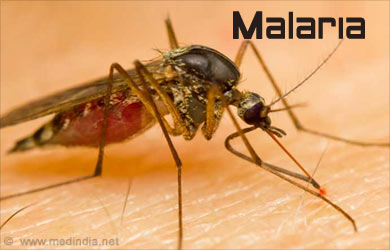A first-in-human Phase I clinical trial has found that one dose of a monoclonal antibody, designated CIS43LS, safely prevented malaria for up to nine months in people who were exposed to the malaria parasite Plasmodium falciparum. The open-label, dose-escalating two-part study is the first to demonstrate that a monoclonal antibody can prevent malaria in people, and a larger, Phase II study is now under way. CIS43LS was discovered and has been developed at the National Institutes of Health (NIH). The NIH team has now published the Phase I study findings in the New England Journal of Medicine (NEJM), in a paper titled, “A Monoclonal Antibody for Malaria Prevention.” The trial was sponsored and conducted by scientists from the Vaccine Research Center (VRC) of the National Institute of Allergy and Infectious Diseases (NIAID), part of NIH, and was funded by NIAID.
“Malaria continues to be a major cause of illness and death in many regions of the world, especially in infants and young children; therefore, new tools are needed to prevent this deadly disease,” said NIAID director Anthony S. Fauci, MD. “The results reported today suggest that a single infusion of a monoclonal antibody can protect people from malaria for at least nine months. Additional research is needed, however, to confirm and extend this finding.”
According to the World Health Organization, there were an estimated 229 million cases of malaria worldwide in 2019, resulting in an estimated 409,000 deaths, mostly in children in sub-Saharan Africa. So far, no licensed or experimental malaria vaccines provide more than 50% protection from the disease over the course of a year or longer. And, as the authors noted, “Although public health measures such as insecticide-treated bed nets and antimalarial drugs led to a 50–75% reduction in global malaria cases in the period from 2000 to 2015, the incidence of malaria is now increasing in many areas despite these interventions … Given the health and economic burden attributable to malaria, additional countermeasures are needed to better control and possibly eliminate this disease.”
Malaria is caused by Plasmodium parasites, which are transmitted to people through the bite of an infected mosquito. The mosquito injects the parasites in a form called sporozoites into the skin and bloodstream. These travel to the liver, where they mature and multiply. Then the mature parasite spreads throughout the body via the bloodstream to cause illness. P. falciparum is the Plasmodium species most likely to result in severe malaria infections, which, if not promptly treated, may lead to death….







